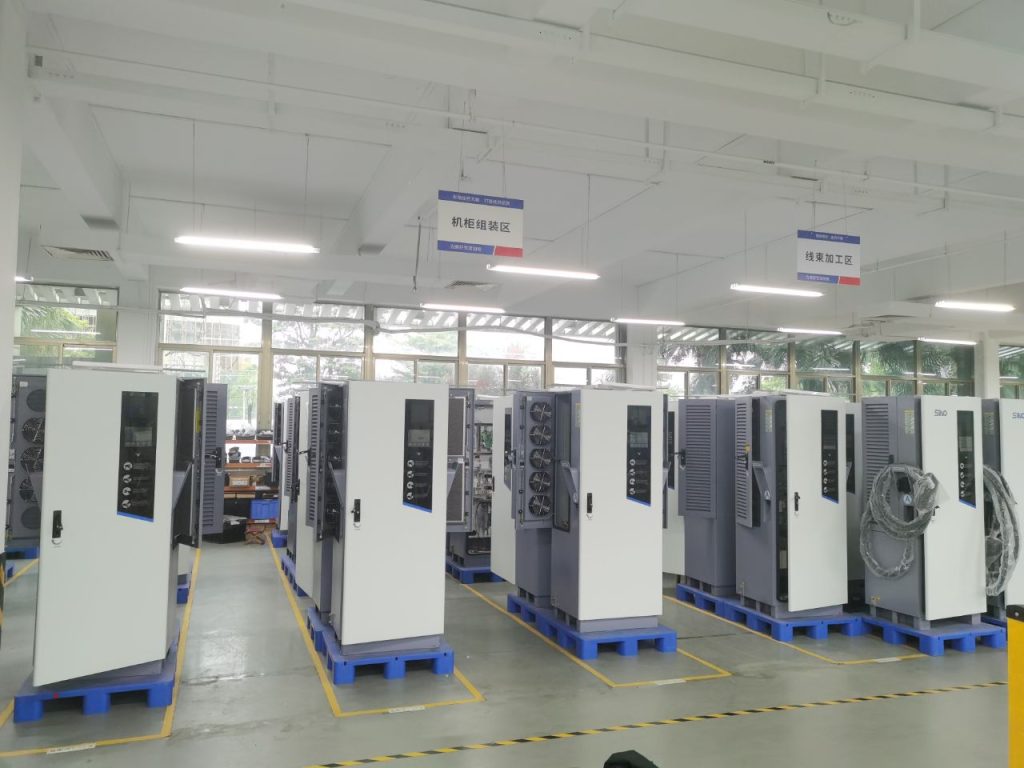
Products
Fast, Reliable, Everywhere

Solutions
Efficient, Innovative EV Charging Solutions.
News
We are committed to the innovation and application of EV charging.
Your company or organization might benefit from establishing a commercial ev charging station. Offering charging infrastructure may be useful for companies who want to show their commitment to sustainability and innovation by attracting consumers and generating income. Given the growing popularity of electric vehicles, the time is now to think about setting up an EV charging station for your company. Here are a few advantages in more detail:
Creating a charging infrastructure can be a great way to draw consumers as more people switch to electric vehicles. If they need to charge their car while away from home, customers are more inclined to visit establishments with EV charging choices. Businesses that run in high-traffic locations, such as shopping centres, tourist destinations, or transit hubs, may find this very advantageous.
Electric cars help lessen climate change's effects by lowering greenhouse gas emissions. By installing an EV charging station, your company can show its dedication to sustainability and lessen its carbon impact. This may be a significant consideration for clients that value ecologically friendly companies. Additionally, companies that embrace sustainability frequently gain more backing from regional governments and communities. Many towns and municipalities provide incentives for companies that take efforts to lessen their environmental effects, such as tax reductions, grants, or refunds.
Adding an EV charging station might help your company or organization's public image. Businesses may strengthen their reputation as socially conscious and innovative institutions by committing to sustainability and innovation. An EV charging station may also be a great way to set your company apart from rivals. Businesses that provide distinctive amenities and services are frequently more effective in attracting and keeping clients in today's congested economy.
Companies that install EV charging stations may make money by charging customers. Fees can range from a few dollars to over $20 for every charging session, depending on the station's location and charging rate. Additionally, some charging networks provide revenue-sharing contracts with host companies, enabling them to get a cut of the money made by the charging station.
Setting up EV charging stations can also inspire staff to purchase electric cars. Businesses may incentivize employees to switch to electric cars by providing a quick and dependable charging option. This can enhance the health and welfare of your employees while lowering your company's carbon impact.
Many governments and localities have established targets to boost the use of electric vehicles and minimize their carbon footprint. Some local ordinances or zoning laws may mandate the installation of EV charging stations at certain companies. Installing an EV charging station will assist in guaranteeing that your company complies with local laws and can help you avoid paying fines or facing other consequences.

These EV charging station planning and installation may be a challenging procedure that calls for careful consideration of several variables. To ensure a good installation, follow these crucial steps:
Selecting a location and a purpose is the first stage in planning a commercial EV charging station. Will the public or only the staff utilize it? What consumption rate may be anticipated? What is the best place for the station regarding visibility and accessibility? Before any more planning can be done, the answers to these questions must be provided.
The next stage is to decide on the infrastructure and equipment needed for charging after establishing the purpose and location. The anticipated usage rate will determine this, the charging need (Level 1, Level 2, or DC rapid charging), and the location's power source. Working with a skilled EV charging station installer or manufacturer will help to verify that the equipment used is appropriate for the power source and the anticipated consumption rate. The installer must be able to give instructions on the installation procedure and any necessary licenses or approvals.
Installation can start when all relevant permissions and approvals have been secured. Installing the charging station and other necessary infrastructure, like electrical panels, conduits, and cable, will usually be required. Collaborating with a skilled installer who can guarantee a proper and secure installation is crucial. The installation should also provide any instruction or assistance required for using the charging station.
After installing the charging station, it is crucial to provide ongoing maintenance and support. This might involve doing routine checks, upkeep, troubleshooting, and repairs. Additionally, it's crucial to offer customers of the charging station ongoing assistance in the form of billing and customer service. This may be accomplished independently or in collaboration with a charging network operator.
Before installation, it is crucial to secure all required permits and approvals from local authorities. This may include zoning permissions, building permits, and electrical permits. This procedure should be made easier by the installer or manufacturer, who will ensure all required permissions are secured before installation starts.
Conclusion:
The future of charging electric vehicles lies with PIWIN commercial ev charging station. This strong, quick charger can produce kilowatts of DC power. It also offers a user-friendly UI and a sophisticated detecting mechanism for optimal convenience. Users of electric vehicles should have reliable, quick, and efficient charging available to them. The maximum degree of efficiency and security is guaranteed by contemporary power management technology.
